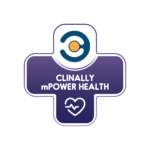The Future of Healthcare Virtual Assistants for Value-Based Care

Virtual Assistant for Doctors – Future of Healthcare
The future of healthcare is looking bright, with technology playing an increasingly important role in delivering high-quality, cost-effective care to patients. One of the key innovations that are gaining traction in this field is the use of virtual assistants for value-based care.
Value-based care is a model of healthcare delivery that focuses on providing the right care at the right time, in the right place, and at the right cost. This approach is based on the idea that healthcare providers should be rewarded for the value they deliver to patients, rather than the number of services they provide.
Virtual assistants are AI-powered software programs that can help healthcare providers deliver value-based care by automating routine tasks and providing personalized, data-driven insights. These assistants can be accessed through a variety of devices, including smartphones, tablets, and desktop computers.
Benefits of Virtual Assistant for Doctors
One of the main benefits of using AI-powered virtual assistants for value-based care is that they can help healthcare providers save time and money. By automating routine tasks, virtual assistants can free up healthcare providers to focus on more important and complex tasks, such as diagnosing and treating patients. This can lead to improved patient outcomes and lower healthcare costs.
Another key benefit of virtual assistants is that they can provide personalized, data-driven insights to healthcare providers. By analyzing large amounts of data from electronic health records, virtual assistants can identify patterns and trends that may not be apparent to the human eye. This can help healthcare providers make more informed decisions about patient care, which can lead to better outcomes and higher value.
One example of a virtual assistant that is being used in the healthcare industry is called “Vee”, developed by the company VeeMed. Vee is a chatbot that uses natural language processing and machine learning algorithms to provide personalized, data-driven insights to healthcare providers. For example, Vee can analyze a patient’s electronic health record and provide a summary of their medical history, current medications, and potential drug interactions.
Another example of a virtual assistant for value-based care is “Sophia”, developed by the company Sophia Health. Sophia is a voice-activated AI assistant that can help healthcare providers manage their patient caseloads and schedule appointments. By using natural language processing and machine learning algorithms, Sophia can understand complex medical terminology and provide personalized recommendations to healthcare providers.
The future of healthcare virtual assistants is looking bright, with many exciting developments on the horizon. As artificial intelligence technology continues to advance, we can expect to see virtual assistants become even more sophisticated and capable of providing even more value to healthcare providers and patients alike.
Conclusion
In conclusion, the use of virtual assistants for value-based care is a promising development in the healthcare industry. By automating routine tasks and providing personalized, data-driven insights, virtual assistants can help healthcare providers deliver high-quality, cost-effective care to patients. As AI technology continues to advance, we can expect to see virtual assistants become even more important in the future of healthcare.
ClinAlly mPower Health App is an AI-powered virtual assistant that provides evidence-based care for doctors. The app is developed in collaboration with AIIMS and CCDC. The app is free and uses a Clinical Decision Support System (CDSS) to help doctors provide better patient care. It can provide personalized recommendations to doctors, helping them to better manage their patients’ care. With the help of ClinAlly mPower Health App, doctors can access the latest medical information, get real-time updates on patient care, and make informed decisions quickly and easily. It is a great tool for doctors to ensure they are providing the best possible care to their patients.


